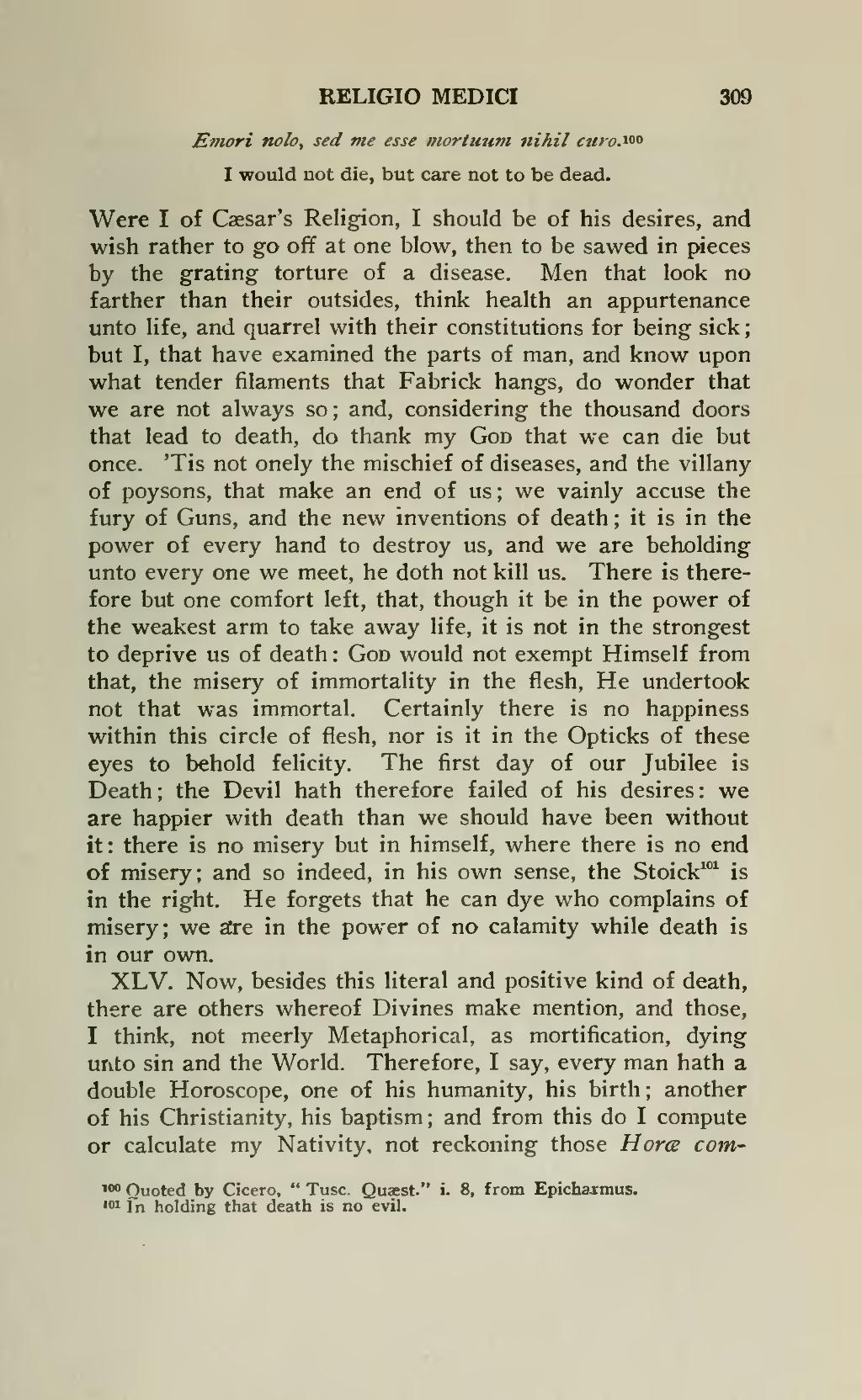Emori nolo, sed me esse mortuum nihil curo.[1]
I would not die, but care not to be dead.
Were I of Cæsar's Religion, I should be of his desires, and wish rather to go off at one blow, then to be sawed in pieces by the grating torture of a disease. Men that look no farther than their outsides, think health an appurtenance unto life, and quarrel with their constitutions for being sick; but I, that have examined the parts of man, and know upon what tender filaments that Fabrick hangs, do wonder that we are not always so; and, considering the thousand doors that lead to death, do thank my God that we can die but once. 'Tis not onely the mischief of diseases, and the villany of poysons, that make an end of us; we vainly accuse the fury of Guns, and the new inventions of death; it is in the power of every hand to destroy us, and we are beholding unto every one we meet, he doth not kill us. There is therefore but one comfort left, that, though it be in the power of the weakest arm to take away life, it is not in the strongest to deprive us of death: God would not exempt Himself from that, the misery of immortality in the flesh. He undertook not that was immortal. Certainly there is no happiness within this circle of flesh, nor is it in the Opticks of these eyes to behold felicity. The first day of our Jubilee is Death; the Devil hath therefore failed of his desires: we are happier with death than we should have been without it: there is no misery but in himself, where there is no end of misery; and so indeed, in his own sense, the Stoick[2] is in the right. He forgets that he can dye who complains of misery; we are in the power of no calamity while death is in our own.
XLV. Now, besides this literal and positive kind of death, there are others whereof Divines make mention, and those, I think, not meerly Metaphorical, as mortification, dying unto sin and the World. Therefore, I say, every man hath a double Horoscope, one of his humanity, his birth; another of his Christianity, his baptism; and from this do I compute or calculate my Nativity, not reckoning those Horæ com-
